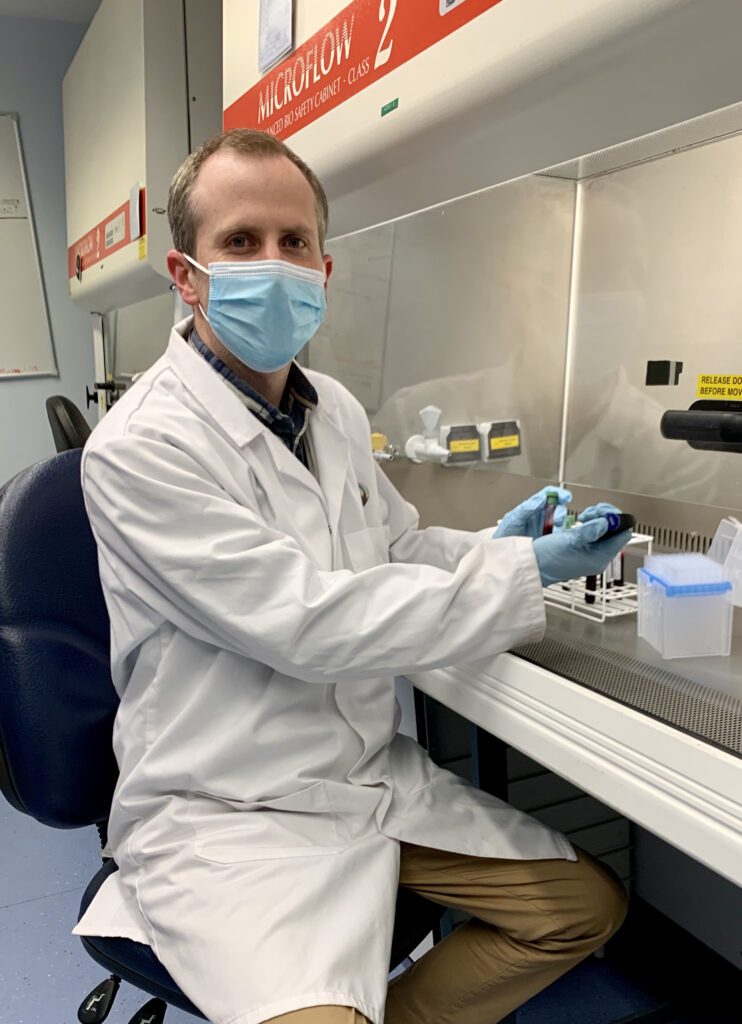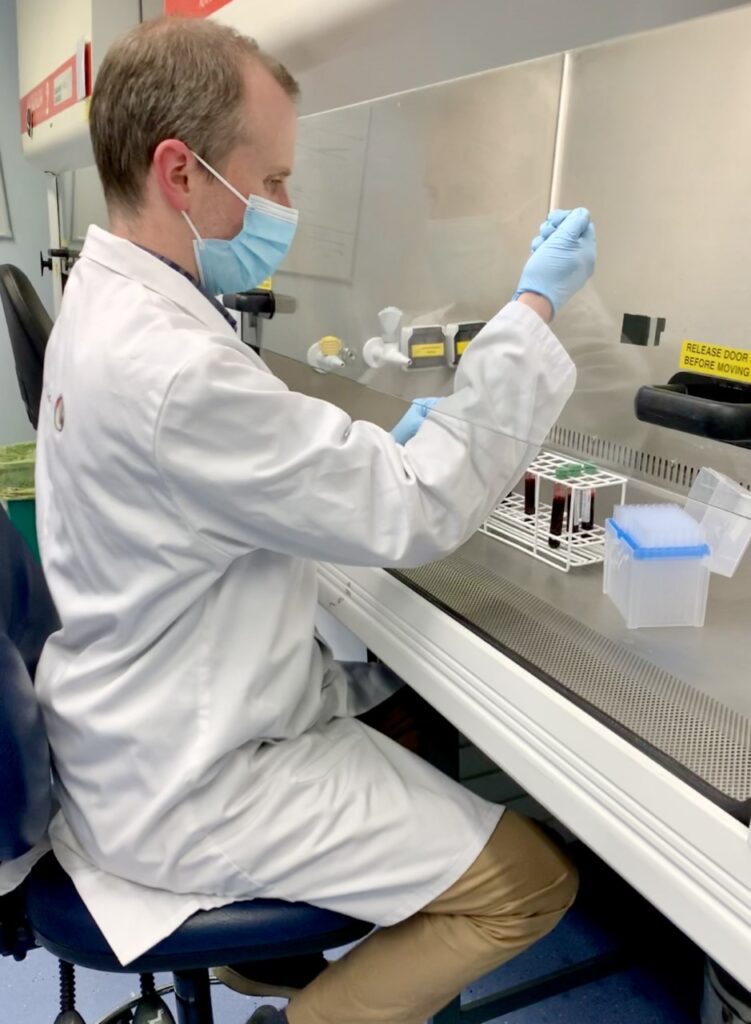Sensitive test can also distinguish between immune response induced by vaccination and infection
A test to measure both the T-cell and antibody response to SARS-CoV-2 in a single blood sample has been developed by scientists at Cardiff University.
The unique approach can also be used to measure the immune response brought about by vaccination and previous infection.
It was developed in collaboration with Wales-based biotechnology company ImmunoServ Ltd and is outlined in a study published in the journal Immunology.

Dr Martin Scurr, a research associate at Cardiff University’s School of Medicine and lead author on the study, said: “COVID-19 infection rates remain alarmingly high – and it is clear infection even after vaccination is an issue. To help control future outbreaks and identify at-risk individuals, it is important to understand the exact make-up of the immune response to COVID.
“Our test accurately detects both the T-cell and antibody response to the virus in one blood sample. Together these indicators represent a powerful measure of immunity from COVID-19.

“The test can be made widely available, is easy to employ and cost effective, and should play a very useful role in monitoring this pandemic, for instance by identifying individuals at greater need of booster jabs.”
Antibody testing was seen as crucial to easing lockdown during the pandemic – but antibodies are just one arm of the body’s immune response and in some individuals this response is weak and short-lived. Scientists believe T-cell immunity plays a much greater role in protecting people from future infection, however large-scale testing has proven more challenging.
In this study, the researchers took a small sample of blood from individuals of all ages, 68 with underlying cancer and 231 healthy donors. They stimulated T-cells with small pieces of the virus called peptides; the T-cells recognise these peptides if the individual has been previously infected (or vaccinated) and produce chemicals named cytokines which can be easily measured.
The study also monitored the size of the T-cell and antibody responses in a group of individuals tested before, during and after the UK’s COVID-19 vaccination campaign. While both vaccine doses were required to maximise the T-cell response against the virus, the study found previously infected individuals required only one dose to achieve comparable immune responses.
The test proved most useful in monitoring immune responses in patients considered more at risk from COVID-19, even after vaccination. The study found the second vaccine dose was essential for cancer patients. Among cancer patients recruited from Velindre Cancer Centre in Cardiff, two doses induced T-cell and antibody responses to equivalent levels as healthy donors.
However, it is clear that in some cancer patients there is a dramatic fall of in immune responses at three months, not seen in healthy controls, and highlights the importance of monitoring these responses.

Professor Andrew Godkin, co-senior author from Cardiff University and the University Hospital of Wales, said: “Without this sort of information there is uncertainty around whether repeated booster vaccinations will be required in future, and who in particular will need them. This data is crucial for understanding how and when to offer re-vaccinations to different groups.”
The research team will also monitor whether T-cell and antibody responses induced by vaccination can protect against SARS-CoV-2 mutant variants, including the Delta variant that is currently the most prevalent in the UK.
Danny Altmann, Professor of Immunology at Imperial University, said: “This study is important in both demonstrating the ease of measuring immune responses using a whole blood approach, but also the importance of monitoring susceptible individuals and healthy controls for differences in vaccine response and future potential loss of protection. Long-term monitoring will be crucial to understand and quantify this problem.”
The research was funded by UK Research and Innovation as part of its response to the pandemic, along with the Medical Research Council and Cancer Research Wales.

| [donate]
| Help keep news FREE for our readersSupporting your local community newspaper/online news outlet is crucial now more than ever. If you believe in independent journalism,then consider making a valuable contribution by making a one-time or monthly donation. We operate in rural areas where providing unbiased news can be challenging. |



















